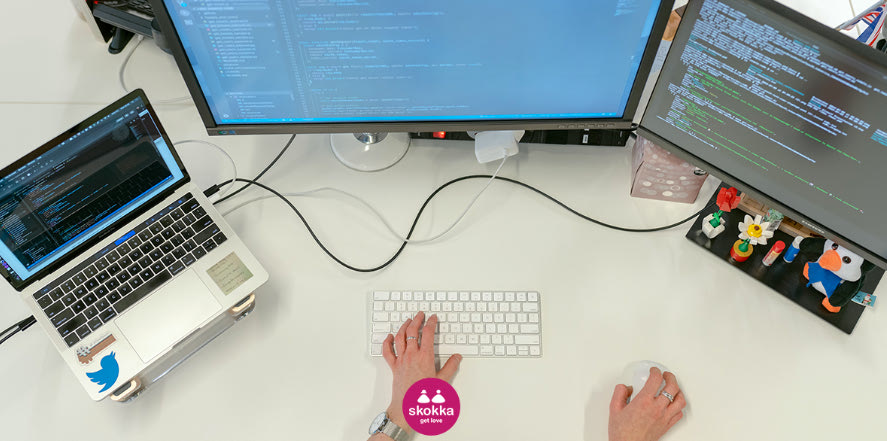The internet has become a central space for human, professional, and personal interactions. With the growth of online platforms, especially those with high traffic, the risks linked to digital security have also increased. What was once an occasional issue has now become a constant concern for companies, users, and specialists.
Platforms that receive thousands or even millions of visits per day are prime targets for hacker attacks, data leaks, identity theft, and the misuse of sensitive information. The challenge is even greater for services dealing with personal, intimate, or adult content — sectors where privacy is as valuable as technical performance.
Data protection and high-traffic platforms
Among the platforms that require greater attention when it comes to security are those dedicated to adult entertainment services. A good example can be found in the advertisements on Skokka Limassol, which attract a high daily volume of visitors. These platforms connect people interested in personal experiences with verified profiles categorised by location, preferences, and availability.
With this level of traffic, cybersecurity measures go beyond the basics. Platforms adopt strong protection strategies, such as end-to-end encryption, real-time monitoring of suspicious traffic, protection against bots and denial-of-service (DDoS) attacks. In addition, they allow users to report suspicious content and block unwanted contacts, giving more control to the individual user.
Ongoing investments in digital infrastructure are also essential to protect both visitors and advertisers. After all, trust is the foundation of any virtual environment — even more so when dealing with sensitive or private interactions.
Conscious users and safe behaviour
No matter how advanced the platform’s security measures are, user behaviour remains a key pillar of digital protection. Browsing responsibly, avoiding suspicious links, not sharing personal information outside the platform, and always using strong passwords are fundamental steps to avoid scams.
This recommendation is especially important in environments with multiple profiles and personal interaction, such as those promoted by platforms like skokka.cy, which highlight escort services across cities like Limassol and Nicosia. The demand for discretion in such spaces requires extra care — particularly during periods of increased activity, such as public holidays or local festivities, when interactions naturally intensify.
Many digital scams today do not exploit technical flaws but human vulnerabilities — curiosity, haste, or the desire for immediate trust. This is why digital education continues to be a powerful tool to minimise risks and improve the overall online experience.
Technological advances that protect the user
In recent years, digital security has gone beyond traditional antivirus programs. Technologies such as artificial intelligence, machine learning, and blockchain are now part of the routine of major platforms. These tools help identify suspicious patterns, prevent fraud, and ensure data flows securely.
In addition, protocols such as two-factor authentication and the use of private networks (VPNs) have become recommended even for the general public. On high-traffic platforms, these tools add an extra layer of protection against intrusions.
Platforms like Cyprus already employ secure geolocation, customised filters, and IP monitoring to reduce unwanted or abusive access. Protection is not only about technical data — it is also about ensuring well-being, freedom, and comfort for those seeking private online experiences.
The role of transparency and moderation
Another key element of digital safety is the presence of active human moderation. Even with automated technologies, trained teams are needed to handle reports, review content, guide users, and quickly remove any violations of platform rules.
Transparency in data handling has also become both a legal and ethical obligation. Terms of use and privacy policies must be clear, accessible, and strictly followed. Users must know where their information is stored, for how long, and for what purpose.
This transparency is what builds trust — allowing people to browse, interact, and even make transactions without constant fear of exposure.
Security as a pillar of freedom
It is a mistake to think digital security serves only to protect against cybercrime. In practice, it is what enables users to exercise their online freedom — of expression, choice, and connection — without fear.
This becomes even more relevant in spaces dealing with sensitive content, such as adult entertainment and meeting platforms. A secure system allows people to explore their interests, find compatibility, and connect with others genuinely. Each added layer of security not only enhances protection but also reinforces the right of every individual to use the internet as a legitimate space for discovery and pleasure.
Privacy is not a luxury — it is essential
In times of hyperconnectivity, maintaining privacy should not be seen as a privilege but as a basic right. Cybersecurity is a fundamental part of this equation — and the more sensitive the content involved, the greater the investment in protection should be.
High-traffic platforms, especially those for adult entertainment or intimate connections, must set the standard for digital best practices. Meanwhile, users should adopt a critical and cautious attitude, demanding the same level of respect and safety they apply to their offline lives.
With technology, transparency, and digital education, it is possible to turn the internet into an environment where freedom and protection go hand in hand — even when it comes to desires, connections, and personal experiences.


